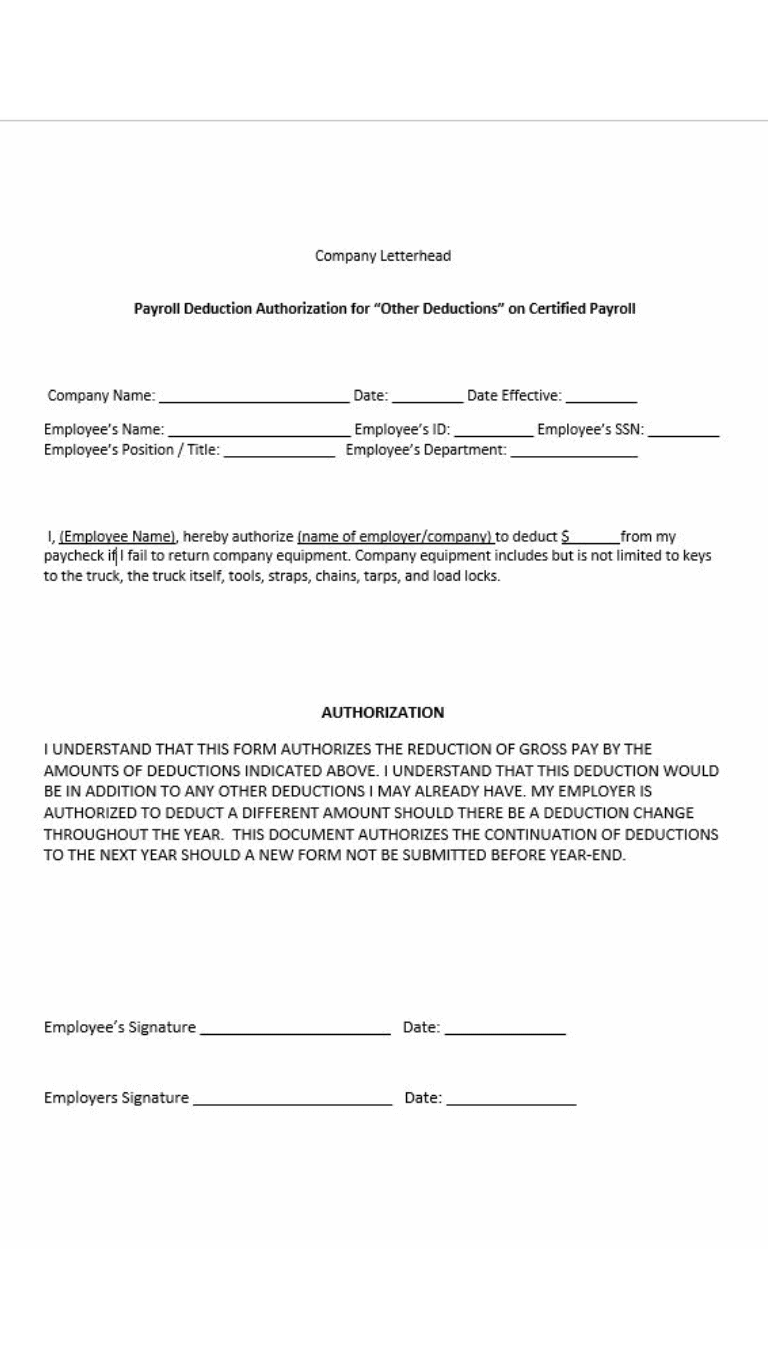When a truck driver abandons their vehicle, it creates chaos for your business—missed deliveries, costly recovery efforts, and potential damage to your reputation. You might be wondering, “Can I charge my driver for abandoning their truck?” The frustration is real, and the financial impact can be significant. The good news is, that with the right steps in place, you might be able to recover some of those costs.
At Superior Trucking Payroll Service, we’ve seen it all when it comes to handling trucking payroll and employee issues. As the first and only payroll provider in the U.S. that focuses specifically on trucking companies, we understand your pain points and are here to help.
In this guide, we’ll show you how you might be able to recover costs and protect your business when dealing with truck abandonment. Please understand there is no sure way to keep your company out of trouble if you decide to charge the driver.
***** Disclaimer: We are not lawyers. Always consult legal or human resources professionals to ensure your actions comply with applicable laws. *****
What is Considered Truck Abandonment in the Trucking Industry?
Truck abandonment occurs when a driver leaves their truck without permission or notification. Normally it happens when the driver is angry at the company and feels he has no other option. This situation disrupts operations and can result in significant financial and logistical problems for the company. Recovering the truck, dealing with potential damages, and handling missed delivery schedules can all be costly.
Is it Legal to Charge a Driver for Truck Abandonment?
Maybe, but there is a key requirement: an authorized deduction form signed by the driver. This form should be completed during the driver’s orientation BEFORE they start working for you. It will allow you to deduct an abandonment fee from the driver’s paycheck. This form can also cover other items, such as keys, fuel cards, or other company-owned equipment. The items listed can and will vary from company to company.
If you don’t have this signed form, you cannot charge the driver for truck abandonment or other related fees. It’s important to have a clear dollar amount listed for each item on this form, and the cost should be deducted from the driver’s last paycheck. Even after these deductions, make sure that the final paycheck still meets your state’s minimum wage requirements.
For example, if their final 40 hour paycheck would have been $1000, but there is a $800 truck fee- you can’t recoup the total cost. Because at minimum wage, in Michigan, for 40 hours their paycheck would have to be at least $413.20 before taxes.
How to Keep Your Trucking Company from Getting in Trouble?
The simple answer is: DO NOT try to recoup truck abandonment fees from your truck driver even with a signed authorized deduction form. All situations are subject to interpretation by lawyers, auditors, or other authorities involved in the case. Even if you think you have a strong case, there’s a good chance the trucking company will not win.
The best way to avoid legal trouble – Don’t charge your driver!

Steps to Take When a Truck is Abandoned
When a truck is abandoned, the company’s priority is to locate and recover it. This can involve tracking systems, contacting authorities, or hiring someone to find and return the truck. Once the equipment is recovered, it will be inspected for any damages. Depending on its condition, it might be repaired and returned to service, sold, or assigned to another driver.
What happens to the truck driver who abandons their truck?
When a driver abandons their truck, several potential consequences can follow:
Employment Termination:

When a driver abandons their truck, it’s often an act of quitting their job. Since no notice was given, the driver is essentially walking away from their responsibilities. This can lead to immediate termination. However, if the abandonment wasn’t intended as a resignation, the company may still terminate the driver due to this serious breach of trust. Either way, abandoning a truck is usually a deal-breaker that ends the employment relationship.
It is perfectly legal to terminate an employee for truck abandonment (or any other reason) in an at-will employment state. In these states, either the employer or the employee can end the employment relationship at any time, for almost any reason. However, the only state that does not follow at-will employment is Montana. In Montana, after a probationary period, employees can only be terminated for just cause, meaning the company must have a legitimate reason to fire the driver, like a serious breach of contract.
Financial Liability:
With a signed authorized deduction form, the company can charge the driver for costs related to the truck’s recovery, damages, or other losses. These charges should be deducted from the driver’s last paycheck. The driver’s final paycheck must still meet or exceed the minimum wage requirement.
Legal Action:
If the truck abandonment causes significant losses, the trucking company might pursue legal action to recover additional costs. This could include suing the driver for damages and related expenses. For example, if a driver abandons a truck loaded with valuable, time-sensitive goods and the company loses a contract or faces penalties because the delivery wasn’t made on time, they could take legal action to recover those losses. While this isn’t common practice, it could be an option the company decides to pursue.
Damage to Reputation:
Abandoning a truck can hurt a driver’s reputation in many ways. It shows that the driver might not be reliable, making it harder to find new work in the industry. This kind of behavior can also affect their driving record and insurance rates.
When truck abandonment is reported to local law enforcement and transportation authorities, it gets added to their driving record. Insurance companies may label them as a high-risk driver, causing their insurance rates to skyrocket. This makes it much more difficult and expensive to get coverage in the future.
However, as a trucking company owner you should report this incident to the authorities even if it has these repercussions for the driver. It’s important that the industry as a whole is held to a higher standard.
Potential Fines:
In some cases, abandoning a truck can lead to fines or penalties from transportation authorities. Fines might be imposed if the abandonment violates transportation laws or regulations, such as leaving a vehicle in an unsafe or unauthorized location.
An unsafe location could be somewhere that poses a danger to others, like blocking traffic, parking on the side of a busy highway, or leaving the truck in a high-crime area where it might be vandalized or stolen. An unauthorized location might be a place where parking is prohibited, like private property without permission or in a restricted area where trucks are not allowed.
Both the company and the driver need to be aware of local laws to avoid these additional financial consequences. Addressing these issues promptly and cooperating with authorities can help minimize the risk of incurring such penalties.

Understanding Employee Rights when a Truck is Abandoned
While trucking companies have the right to protect their interests, it’s important to remember that employees, such as truck drivers, have rights that protect them too. Unfortunately, this is even true in difficult situations like truck abandonment.
If a company tries to deduct fees without a signed authorization form, the driver can take the issue to the labor board—where the employee is likely to win. It’s important to ensure that after any deductions, the driver still earns at least minimum wage on their last paycheck. Failure to comply with this can lead to legal trouble for the company, so it’s crucial to handle these matters properly and within the law.
Maintaining Strong Driver Relationships
Building and maintaining good relationships with your drivers is key to preventing issues like truck abandonment. Open communication, fair treatment, and clear expectations can help foster trust and loyalty. Regular check-ins and providing a platform for drivers to voice concerns can make them feel valued and heard. By investing in driver satisfaction and addressing concerns proactively, you not only reduce the likelihood of abandonment but also improve driver retention.
It’s also important for the trucking company to evaluate why drivers might be abandoning their trucks. Understanding the root causes of these issues can help prevent them in the future. We’ll explore these issues and how to correct them in a separate article; Why Truck Drivers Abandon Their Trucks and How to Prevent It.
In summary, dealing with truck abandonment is a tough challenge for any trucking company. While it’s possible to charge a driver for this, it requires careful preparation, like having a signed authorized deduction form in place. It’s also essential to respect employee rights, ensuring that any deductions leave the driver with at least minimum wage on their final paycheck. By understanding the legalities and handling the situation professionally, you can protect your company’s interests and maintain a strong reputation with your customers.
At Superior Trucking Payroll Service, we understand the challenges of managing a trucking company. Let us help you handle tricky situations like truck abandonment and keep your payroll running smoothly. Learn how our specialized payroll services can help you and your trucking company be successful, even when faced with difficult situations such as truck abandonment.
Before founding Superior Trucking Payroll Service, Mike was the CFO of a trucking company with 80 trucks and a thriving brokerage. This experience gave him the perspective that a payroll solution has to make the lives of the office people better. All the solutions he has designed are to benefit everyone. Our company mission is to help trucking families and that includes the company owners, the drivers, and the office.

